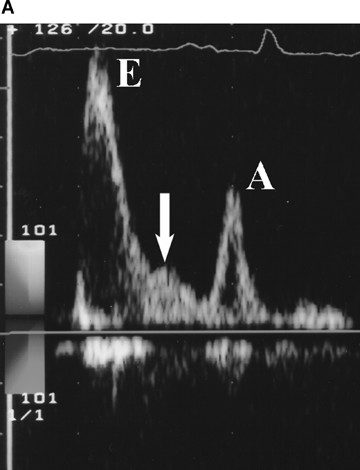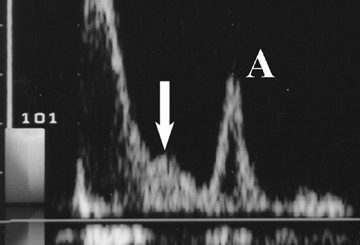Taxonomy
Contents [hide]
- 1 Anatomy
- 2 Biochemistry
- 3 Cardiology
- 4 Cells
- 5 Clinical Questions
- 6 Dermatology
- 7 ECG Questions
- 8 Echocardiogram
- 9 Embryology
- 10 Endocrinology
- 11 Gastroenterology
- 12 Genetics
- 13 Gynaecology
- 14 Hematology
- 15 IMAGE Questions
- 16 Immunology
- 17 Infectious Disease
- 18 Info-Bits
- 19 Info-Cards
- 20 Medicine
- 21 Mitral Stenosis
- 22 Nephrology
- 23 Neurology
- 24 Obstetrics
- 25 Oncology
- 26 Ophthalmology
- 27 Orthopedics
- 28 Pathology
- 29 Pharmacology
- 30 Physiology
- 31 Points
- 32 Psychiatry
- 33 Radiology
- 34 Respiratory system
- 35 Stream
- 36 Surgery
- 37 ULTRASONOGRAPHY
- 38 Valvular Heart Disease
- 39 ECG Question-2
- 40 Masquerading Bundle Branch Block
- 41 Image Question-55
- 42 Procalcitonin
- 43 Hypothyroidism – Points to Remember
- 44 Right atrial inversion
- 45 Which of the following is used in treatment of chronic thromboembolic pulmonary hypertension?
- 46 Renal cell carcinoma
- 47 Stauffer syndrome is most commonly associated with
- 48 ECG findings suggestive of acute pericarditis
- 49 Medicine MCQs-25
- 50 Image Question-55
- 51 Pericardial tamponade – Which is more likely
- 52 Fried egg appearance – which type of brain tumor?
- 53 Spodic sign
- 54 Parasitic infection of the CNS
- 55 TAPSE
- 56 Nitric Oxide Synthas
- 57 Pro-inflammatory cytokines released by macrophages in sepsis
- 58 Smudge cells
- 59 Chronotropic index
- 60 Maximum HR with exercise
- 61 Heart Rate Recovery
- 62 Conus Medullaris Syndrome
- 63 Image Question-54
- 64 Frog-leg position
- 65 ‘Blinking frog’ sign
- 66 Frog sign
- 67 Clinical Question-11
- 68 Nikolskiy′s phenomenon
- 69 Olfleck’s phenomenon
- 70 De Ritis ratio
- 71 Most common form of non-haemolytic hyperbilirubinaemia
- 72 Jaundice is usually clinically detectable when the plasma bilirubin
- 73 Circle of Willis
- 74 Artery of Wollschlaeger and Wollschlaeger
- 75 Azygos anterior cerebral artery
- 76 Arteria termatica of Wilder
- 77 The Vidian artery
- 78 Artery of Salmon
- 79 Artery of Percheron
- 80 McConnell’s Capsular Arteries
- 81 Recurrent artery of Heubner
- 82 Eponyms in artery
- 83 Waterston’s groove
- 84 Bachmann’s bundle
- 85 Pre-excitation
- 86 Accessory pathway
- 87 Wolf–Parkinson–White Syndrome
- 88 Sacubitril
- 89 Urinary tract infection
- 90 Clinical Question-10
- 91 McConnell’s sign seen in
- 92 Cysticercosis
- 93 Image Question-53
- 94 Down syndrome – Pulmonary hypertension
- 95 Transient myeloproliferative disease
- 96 Down syndrome
- 97 Krückmann-Wolfflin bodies
- 98 Brushfield spots
- 99 Myelopathy in Down syndrome
- 100 Down syndrome – characteristics in Down syndrome
- 101 Down syndrome – disabilities
- 102 Manning criteria
- 103 Most common chromosomal abnormality
- 104 Down syndrome – genetic disorder
- 105 Types of Down syndrome
- 106 Congenital defect
- 107 Myocardial bridging- coronary artery anomaly
- 108 Ghent criteria
- 109 Triad of sinusitis, pulmonary infiltrates, and nephritis
- 110 Most common cause of glomerulonephritis
- 111 Nephrotic Glomerulonephriti
- 112 Tram track appearance in kidney
- 113 CKD classification
- 114 What is the most common cause of death in renal failure patients
- 115 Most common cause of End-stage renal disease
- 116 Gorelick Scale
- 117 Vascular dementia
- 118 Conversion disorders presenting as hemiparesis
- 119 Mechanism of Positive Hoffmann’s Reflex
- 120 Mayer reflex
- 121 Neurology MCQs – 5
- 122 Low-flow, Low-gradient Severe Aortic Stenosis
- 123 Right ventricular infarction
- 124 Classic ECG criteria for the diagnosis of ST-segment–elevation myocardial infarction
- 125 Brockenbrough-Braunwald-Morrow sign
- 126 “Brockenbrough-Braunwald-Morrow phenomenon”
- 127 Venturi effect
- 128 “Spike and dome” pulse
- 129 Significant Coronary artery lesion
- 130 Fractional flow reserve (FFR)
- 131 Which is the term used to describe the amount of additional blood flow that can be supplied to the heart above baseline blood flow?
- 132 Most common genetically transmitted cardiomyopathy
- 133 Hounsfield units
- 134 Annihilation Coincidence Detection
- 135 Treatment for Bell’s Palsy
- 136 Facial palsy and Stroke
- 137 Most common cause of facial weakness
- 138 Lugaro cells






